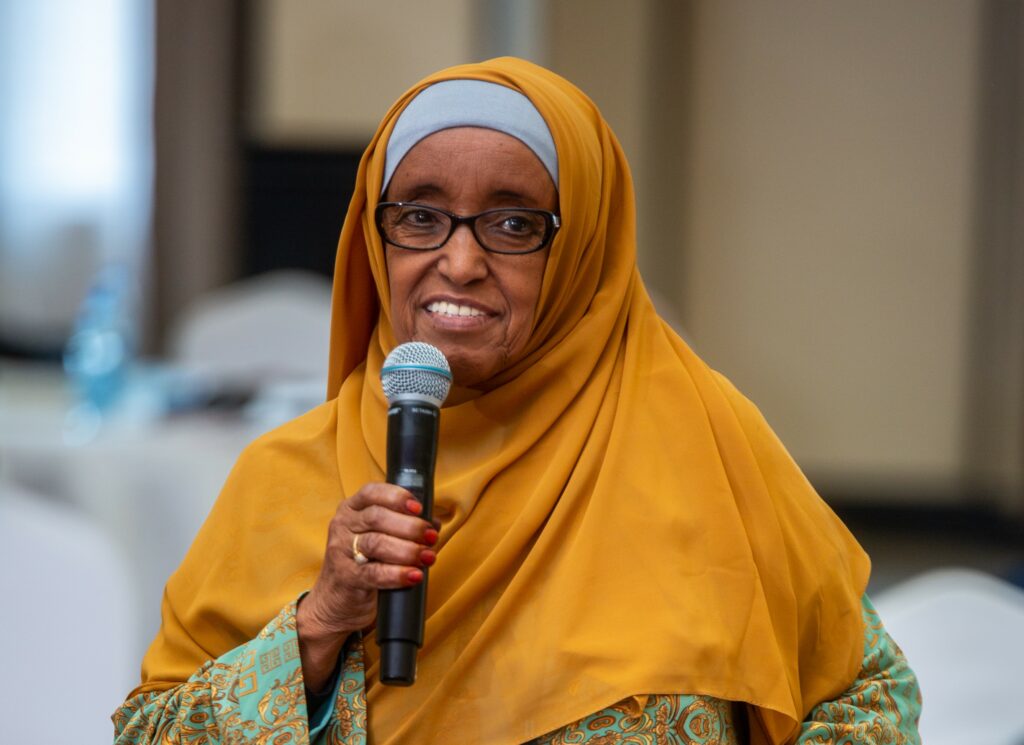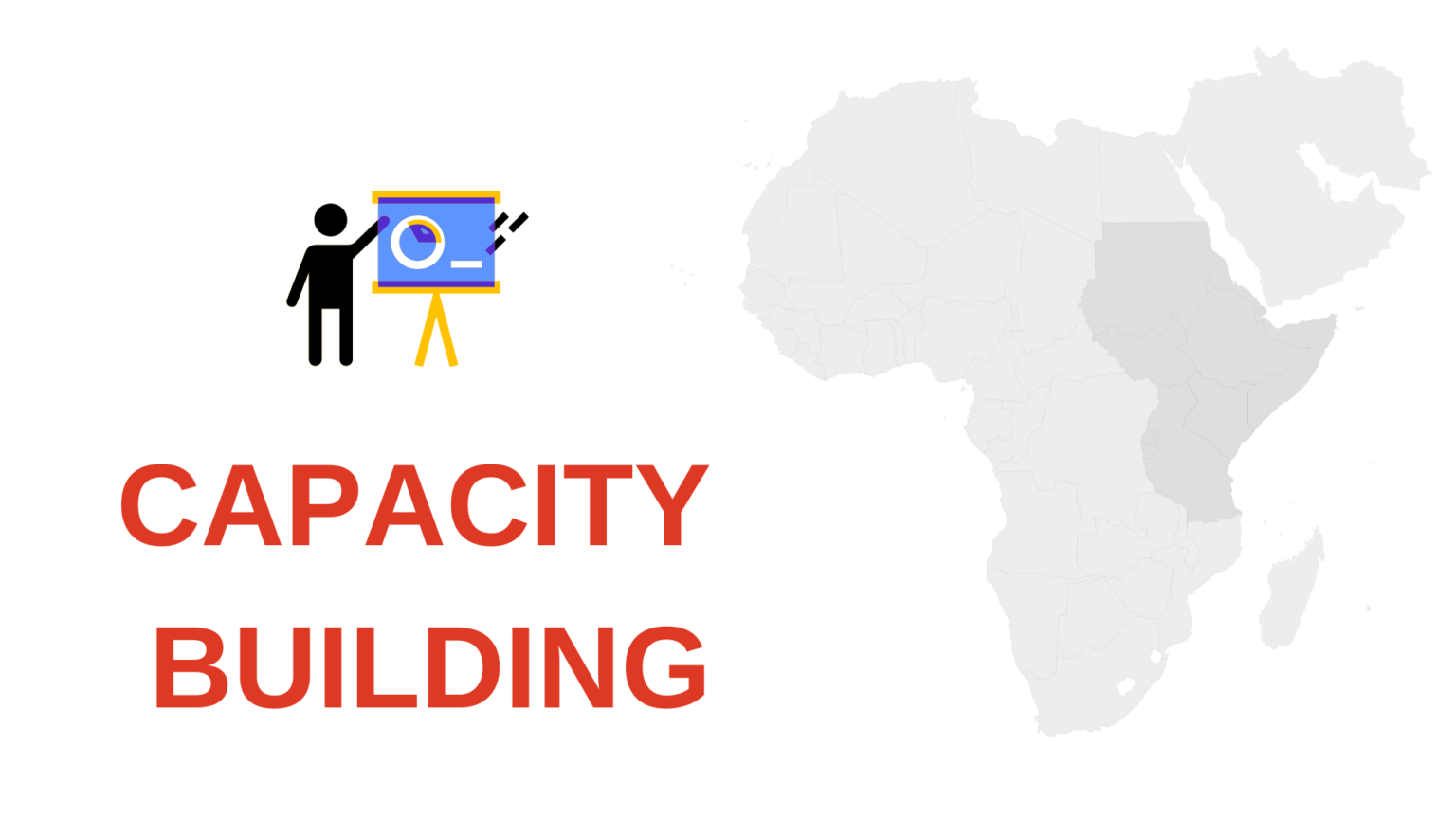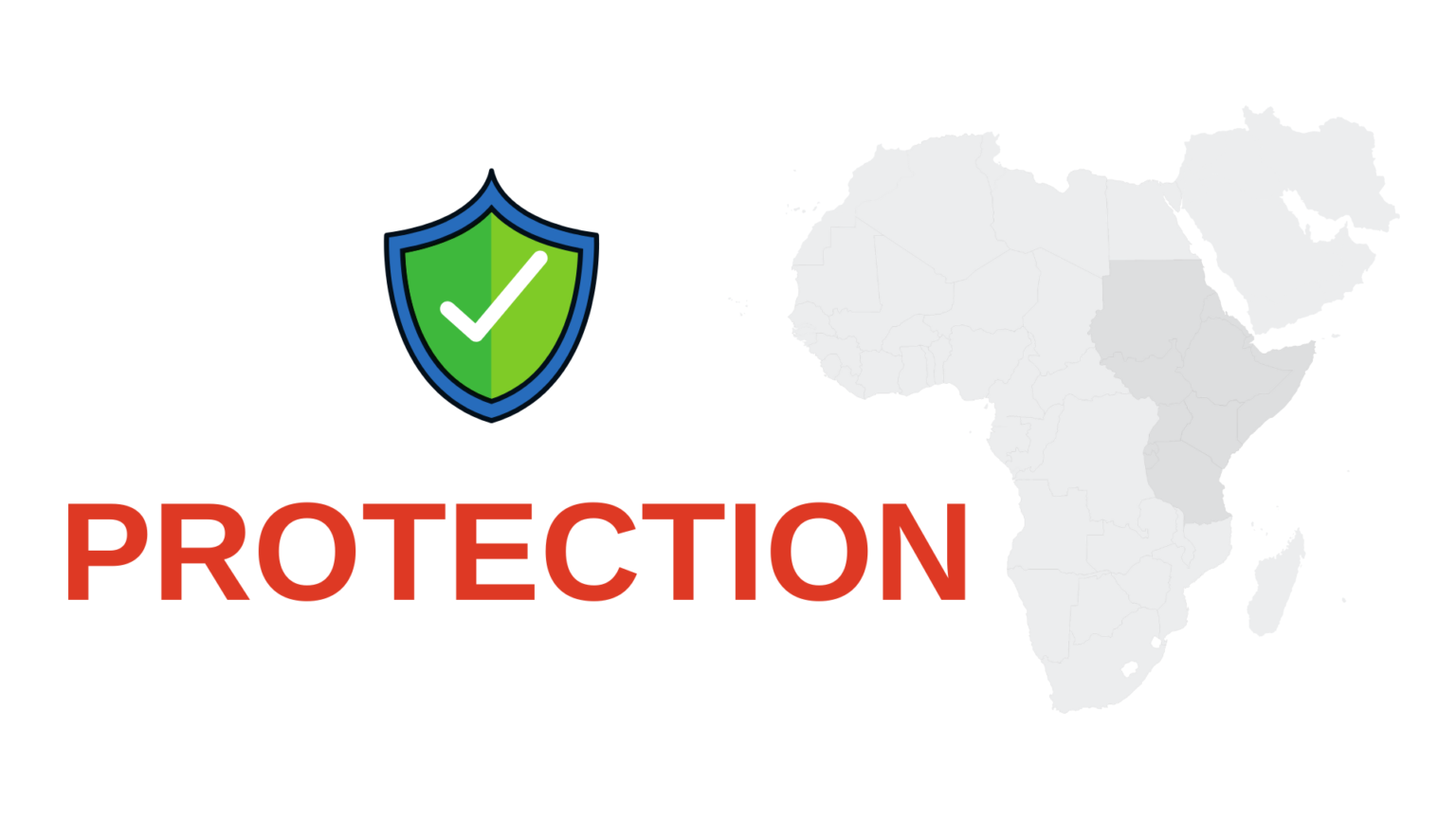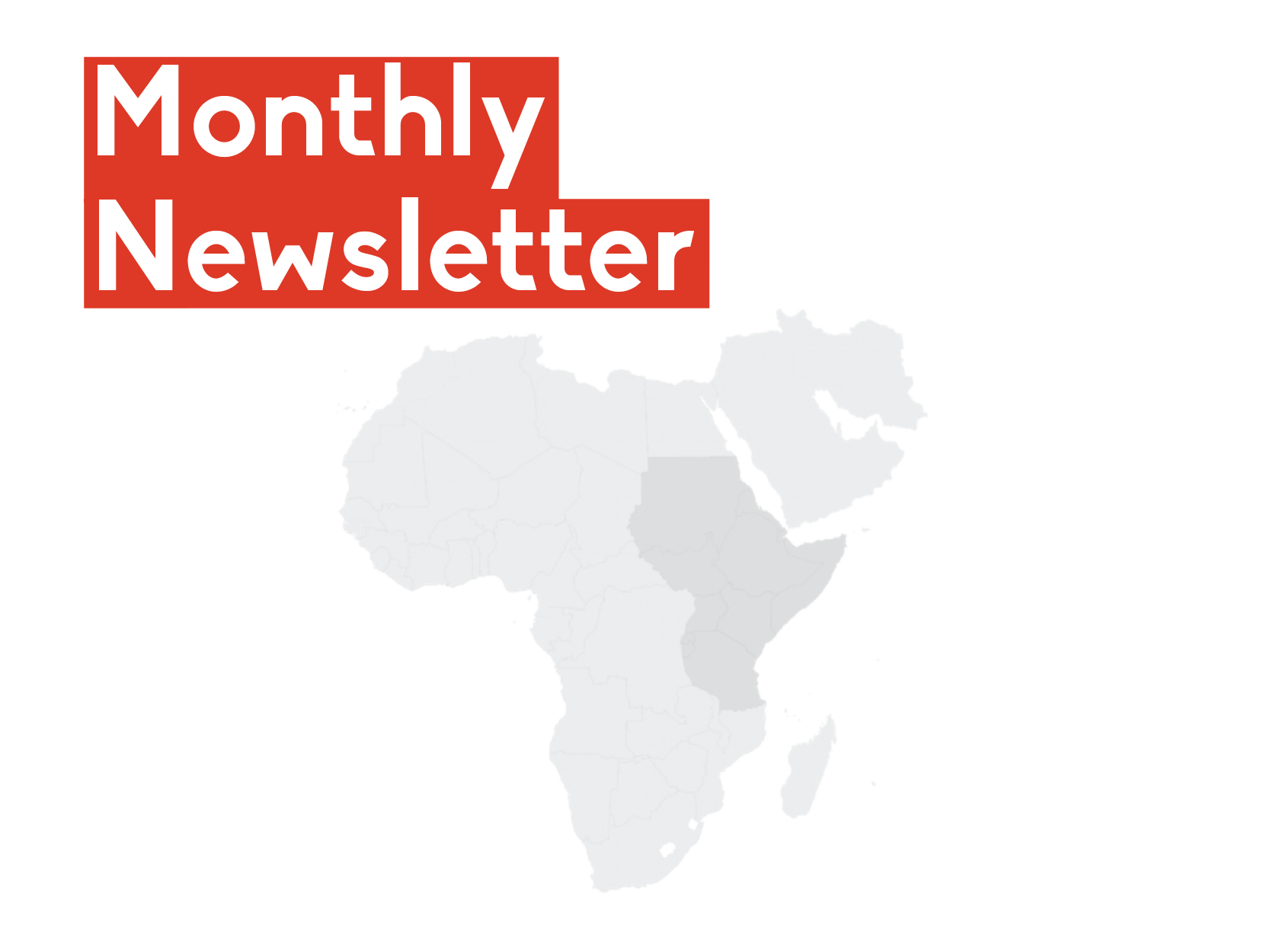Hello friends,
The human rights situation on the continent continues to remain worrisome amid conflict related human rights violations, restrictive legislation and a more intense closing of civic space. The right to freedom of expression continues to be one of the most violated including in Africa. In commemoration of the annually celebrated World Press Freedom Day, we issued a public statement in solidarity with all journalists with focus on journalism in the face of the environmental crisis.
The Africa- Civic Space monitor paints a grim picture as 44 of 49 countries in Africa are rated as either obstructed, repressed or closed reiterating that majority of people in Africa face significant challenges in realising civic space freedoms. This month we continued to witness this downward trend with the war in Sudan raging on, the surge in targeted attacks against human rights defenders (HRDs) in Ethiopia and Tunisia while some countries like Eritrea remain closed.
As a result, HRDs are forced to flee their countries in search of a safer space to continue their human rights work. Once in exile, the HRDs need continued support, and against this background DefendDefenders, continues to extend crucial assistance to exiled HRDs. We convened the fourth interactive dialogue for exiled HRDs bringing together key stakeholders to enhance support systems and collaboration for HRDs in exile. I further congratulate the newly elected committee of the Exiled Working Group, under the leadership of Sojoud Ahmed appointed to coordinate protection, advocacy and capacity building initiatives for HRDs in exile.
During the same month, I joined other steering committee members of the World Movement for Democracy in Sarajevo to discuss preparations for the 12th Global assembly scheduled to be held in South Africa later this year. Considering the global decline in democracy, initiatives contributing to strengthening the resilience and efforts of democracy movements worldwide are welcome.
Finally, I appreciate all partners including national coalitions and sub regional networks of human rights defenders who continue to ensure that HRDs carry out their work safely and effectively. Thank you to all development partners who support all efforts towards enhancing protection of HRDs. I further reassure you of DefendDefenders’ total commitment to the same, and to advocating for safer operating environments for HRDs. I invite you to read on for further details on our engagements during this month.
Hassan Shire,
Executive Director, DefendDefenders
Chairperson, AfricanDefenders
Human Rights Defender of the Month: Asmahan Abulsalam

As a child, Asmahan’s childhood was scarred by the violent practice of female genital mutilation (FGM), then popular in Somali culture. Girls as young as seven years were subjected to the violent practice often against their will, and young Asmahan was revolted by it.
“I witnessed very young girls aged between seven and ten years undergoing this harmful practice (FGM), conducted using rudimentary tools, which usually left long effects on these girls’ bodies. By all intents, it was a violation of both their bodies and their rights, and even at that early age, it didn’t sit well with me,” she says.
Updates from DefendDefenders

From 6 to 9 May 2024 and from 20 to 22 May 2024, DefendDefenders conducted a Ttaala capacity building workshop for 12 participants (9 female, 3 male).
DefendDefenders conducted Safe tag audits from 6 to 9, 20 to 21, and 22 to 23 May 2024, for some of the most at risk organisations in Uganda. These trainings aim to create a pool of qualified and knowledgeable digital security practitioners who can support their local communities.
From 13 to 17 May 2024, DefendDefenders conducted a risk assessment and mitigation training for 15 participants (5 female, 10 male) in Ethiopia.
From 27 to 30 May 2024, DefendDefenders conducted a Ttaala Training of Trainers (ToT) for 12 participants (10 female, 2 male). The training was centered around equipping participants with training methodologies, fostering critical thinking skills, and enhancing monitoring and evaluation (M&E) along with reporting techniques.
From 27 to 31 May 2024, DefendDefenders conducted a safe sisters training for 10 women. The program focused on empowering women human rights defenders to safeguard their digital presence and respond effectively to cyber threats and harassment.
From 27 to 31 May 2024, DefendDefenders Protection and Security Management team conducted a follow-up training on KoBo Toolbox and MDR. A total of 23 HRDs (16 males, 7 females) participated in the training.
From 27 to 31 May 2024, DefendDefenders, in collaboration with their focal partner in Soroti, organized a ToT in Resource Mobilization and Financial Management. A total of 9 WHRDs were trained.
From 8 to 16 May 2024, DefendDefenders conducted two risk assessment visits in Eastern Uganda, Northern Uganda, and Arua. A total of six organisations were visited, and 17 HRDs (10 female, 7 male) participated in the entire activity.
On 22 May 2024, DefendDefenders’ hosted the 4th Protection Service Providers’ Dialogue with exiled HRDs in Uganda. A total of 83 HRDs and protection service providers attended the event, including 36 female and 47 male.
From 21 to 23 May, DefendDefenders attended a regional meeting focused on safety and security for journalists. The discussions covered the support offered to journalists, the challenges they face, and the difficulties encountered in different countries. The meeting also addressed existing protection mechanisms, and participants shared best practices and experiences in supporting journalists.

Ahead of the 56th session of the UN Human Rights Council (HRC56, 18 June-12 July 2024), we are coordinating civil society’s advocacy efforts on Sudan and Eritrea.
As the armed conflict in Sudan continues, DefendDefenders, together with a coalition of over 70 NGOs, urged the HRC to extend the mandate of the Fact-Finding Mission (FFM) for Sudan. The letter makes it clear that the situation in the country, with risks of further atrocities, and the UN’s liquidity crisis call for the FFM to be granted additional time to pursue its work in support of accountability.
Regarding Eritrea, DefendDefenders suggested going beyond the approach the HRC followed in the last few years by beefing up the annual resolution. This year’s Eritrea resolution should extend the mandate of the Special Rapporteur and clearly condemn the grave human rights violations committed by Eritrean authorities.
On 8 May 2024, AfricanDefenders, along with 79 NGOs led by the Egyptian Front for Human Rights, issued an urgent appeal for the immediate and unconditional release of Mohamed Adel. This appeal followed the authorities’ persistent denial of medical care to the activist and his request for better detention conditions. In response, authorities threatened to transfer him to a detention facility.
On 9 May 2024, AfricanDefenders and 27 other NGOs condemned President Saied’s xenophobic remarks about sub-Saharan migrants in Tunisia. The statement demanded the immediate release of Sherifa Riahi, a member of AfricanDefenders’ steering committee, and other detained activists, and called for an end to the mounting attacks on civil society and human rights defenders in Tunisia.
AfricanDefenders in a letter urged the Chairperson of the ACHPR to release all detained activists and journalists. Collaborating with the Committee for Justice, AfricanDefenders also sent an urgent appeal to the UN Special Rapporteur on Human Rights Defenders, calling for action and solidarity regarding the situation of HRDs in Tunisia.
From 24 to 25 April 2024, DefendDefenders joined a partners’ meeting of the United Nations Women’s Peace and Humanitarian Fund (UNWPHF) in Geneva. During the meeting, participants discussed coordinating support for WHRDs. DefendDefenders shared insights on at-risk WHRDs, support for those in exile, and improving engagement with the UN HRC.
On 22 May 2024, AfricanDefenders participated in a panel on the challenges exiled human rights defenders face in host countries. They highlighted the Ubuntu Hub Cities Initiative, emphasizing the need for economic sustainability and social cohesion for long-term sustainability for exiled HRDs.

Throughout May 2024, DefendDefenders received 74 emergency protection support requests from HRDs at risk. Of these, 8 were approved (five male, one female, and two organisations). In total, 18 beneficiaries received support. Additionally, five requests were referred to various partner organisations, 53 requests were not approved due to geographical limitations, with HRDs in Asia advised on alternative support options. Currently, eight requests are pending verification. Among those approved, four were from Uganda, one from Somalia, and one from Sudan.
Opportunities
Report: https://defenddefenders.org/bi-annual-report-october-2023-april-2024/
Statement on Sudan HRC 56: Sudan: Extend the Fact-Finding Mission’s mandate
Statement on Eritrea HRC 56: Extend UN Rapporteur mandate through a substantive resolution
Country Updates:
Burundi
Burundi continues to face heightened scrutiny due to significant human rights challenges, including reports of arrests and restrictions on dissenting voices. There were increased targeted attacks on activists and opposition figures. ACAT Burundi documented 49 murders, 19 abductions, five arbitrary arrests, 22 cases of physical harm, and seven instances of torture. Additionally, heavy rains displaced over 200,000 people and prompted urgent appeals for aid. In May 2024, the National Intelligence Service (SNR) officers arrested Ahmadi Radjabu, technical director of Akeza.net while he was covering a fire at Ruvumera market. On 16 May 2024, he was released without charges after serving two weeks of detention.
Ethiopia
Ethiopia continues to grapple with grave human rights issues, as highlighted by the Ethiopian Human Rights Commission’s documentation of extrajudicial killings, arbitrary detentions, and enforced disappearances across multiple regions. Civilian deaths resulting from airstrikes and armed group attacks have been reported in Oromia, Sidama, and Southern Ethiopia. On 17 May 2024, U.S. Ambassador Massinga urged the Ethiopian government to adopt peaceful resolutions, release detained critics, and halt harassment. However, Ethiopian authorities criticized his remarks as “ill-advised” and “unsolicited.”
Kenya
Kenya continued to experience environmental challenges of heavy rains and floods. The country recorded 315 fatalities, 188 injuries, and reported 38 people missing. Over 306,520 individuals, comprising 61,304 families, were affected by the disaster, with approximately 293,200 people displaced from 58,641 families between 1 March and 29 May 2024. In response, Kenya’s government ordered sudden evacuations from high-risk areas without compensation for affected communities.
On 8 May 2024, police arrested 27 activists at the Mathare Social Justice Centre and Ghetto Foundation offices in Nairobi. The activists were advocating against demolitions in Mathare’s Kiamaiko area, in response to government-led efforts to evict residents from riparian zones following fatal flooding. On 9 May 2024, they were released on a cash bail of Kshs. 10,000 each, with an arraignment scheduled at Makadara Law Courts on 16 May.
Somalia
Realising the right to freedom of expression continues to be a significant challenge in Somalia. Journalists and media outlets faced harassment, intimidation, and censorship creating a restrictive environment. On 12 May 2024, Khaatumo Lasanod police detained Abdirisaq Abdirahman Mohamud Duale, a reporter for Kobciye Media, after he published an interview where a member of SSC-Khaatumo forces threatened retaliation against prisoners held by Somaliland authorities, particularly those in Lasanod prison. On 19 May 2024, authorities released him without charges after eight days of detention.
Rwanda
As Rwanda approaches its 2024 general elections, the political landscape remains largely closed for opposition.
On 13 May 2024, Rwandan authorities denied Human Rights Watch researcher Clementine De Montjoye entry to the country, citing undisclosed “immigration reasons,” and highlighted that “HRW has consistently fabricated reports and distorted the reality of Rwanda,” suggesting they can do so without forcing visits or being present in Rwanda. Prior to this, De Montjoye, seeking to investigate human rights, had notified and requested meetings with Rwandan officials. This action raised suspicions of Rwanda evading independent scrutiny ahead of the UK’s asylum seeker transfers.
Uganda
Uganda continues to face corruption, which undermines socio-economic development, public trust, and obstructs efforts to establish a transparent society. Despite ongoing anti-corruption initiatives, the issue persists and directly impacts government offices, private businesses, and critical sectors such as healthcare, education, infrastructure, and law enforcement. Critics and individuals critical of corruption face threats and intimidation. The environment for media workers remained restrictive, with instances of journalists being arrested and assaulted.
In May 2024, the US State Department announced sanctions against five Ugandan public officials, including Speaker of Parliament Anita Among and a former Deputy Chief of Defence Forces. The statement cited Speaker Among’s sanction for her significant involvement in corruption associated with her role in Uganda’s Parliament.
On 22 May 2024, private bodyguards of opposition leader Robert Kyagulanyi Ssentamu assaulted three journalists during their coverage of a businessman’s funeral in Lwengo. They slapped, punched, and pushed Radio Simba reporter Margret Kayondo to the ground. Next Media Services reporter Zainab Namusaazi was punched, and bodyguard Achileo Kivumbi broke her camera. Security head Edward Ssebuwufu seized Nation Media Group reporter Gertrude Mutyaba’s camera but later returned it.

